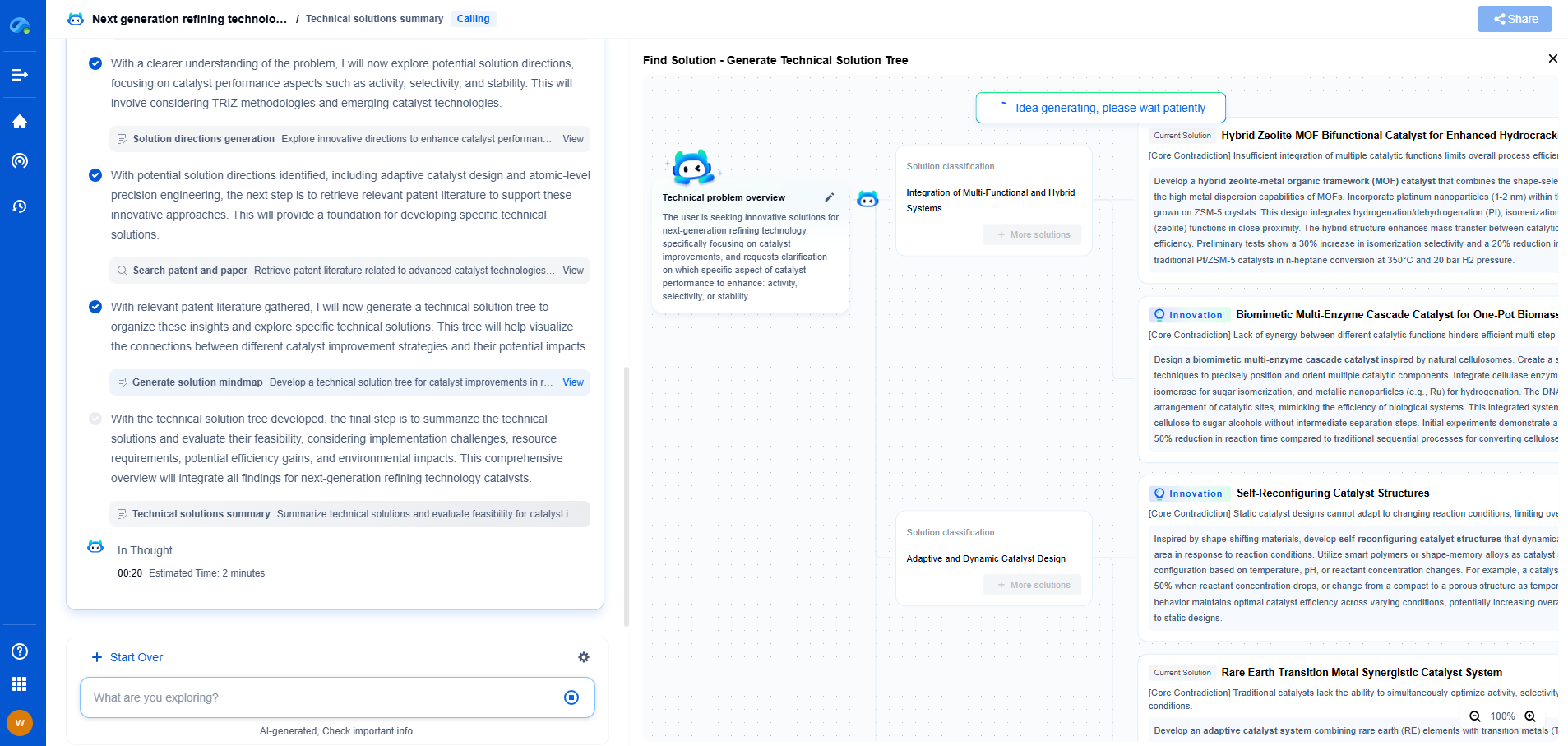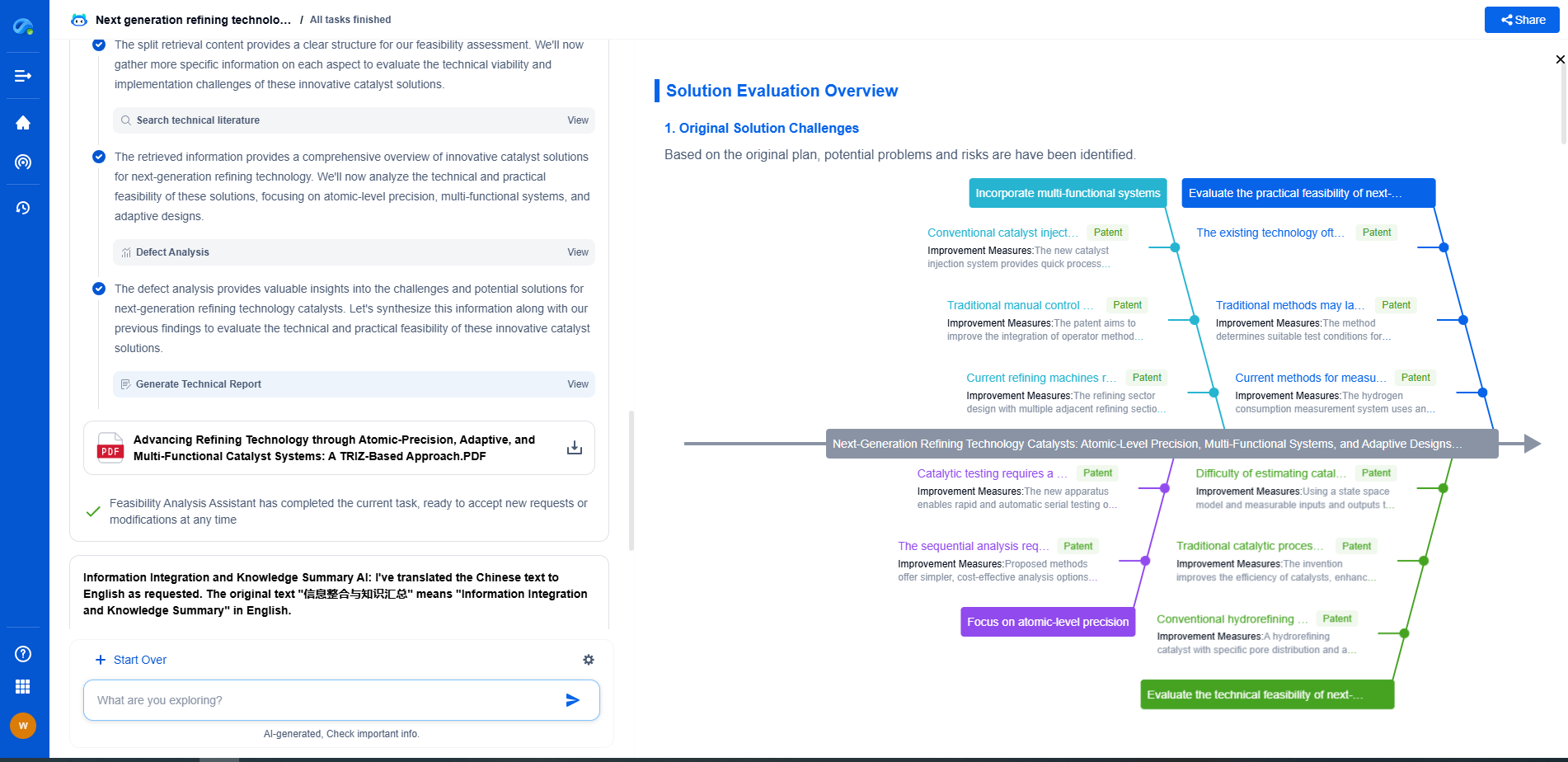Why Do Variable Capacitors Lose Tuning Accuracy Over Time?
JUL 9, 2025 |
Understanding Variable Capacitors
Before delving into the reasons behind the loss of tuning accuracy, it is essential to understand what variable capacitors are and how they function. Unlike fixed capacitors, which have a constant capacitance value, variable capacitors can alter their capacitance by adjusting the overlapping area of their plates or the distance between them. This capacity to change makes them ideal for applications like radio tuning, where precise frequency selection is crucial.
Factors Contributing to Loss of Tuning Accuracy
1. **Mechanical Wear and Tear**
Variable capacitors often consist of moving parts, such as rotatable plates. Over time, mechanical wear and tear can occur due to repeated adjustments. This wear can cause changes in the alignment of the plates, leading to variations in capacitance that were not part of the original design. This mechanical degradation is a common culprit in the loss of tuning accuracy, particularly in older devices or those subjected to frequent usage.
2. **Environmental Influences**
Environmental factors can significantly impact the performance of variable capacitors. Temperature fluctuations, humidity, and exposure to dust or corrosive elements can alter the material properties of the capacitor's components. For instance, thermal expansion and contraction can change the spacing between plates, while corrosion or contamination can affect electrical connections and dielectric properties. These changes can cumulatively lead to drift in tuning accuracy.
3. **Material Degradation**
The materials used in the construction of variable capacitors, including dielectrics and conductive plates, are subject to degradation over time. Dielectric materials can suffer from breakdowns or gradual changes in their permittivity, affecting the capacitor's overall performance. Similarly, the conductive plates can oxidize or corrode, especially if not adequately shielded from environmental factors, leading to increased resistance and altered capacitance values.
4. **Electrical Stress and Overload**
Variable capacitors can also lose accuracy due to electrical stress and overload. Operating a capacitor beyond its rated voltage or exposing it to high levels of current can cause physical damage or permanent changes in its electrical characteristics. Such stresses can lead to breakdowns in the dielectric material or cause deformations in the plates, resulting in unpredictable changes to capacitance.
Mitigating Tuning Accuracy Loss
To address the issue of tuning accuracy loss in variable capacitors, several strategies can be employed:
- **Regular Maintenance and Inspection**
Implementing a routine maintenance schedule can help identify and mitigate early signs of wear and tear or environmental damage. Regular inspection of variable capacitors can ensure that any mechanical misalignments or material degradations are promptly addressed.
- **Environmental Control**
Maintaining stable environmental conditions can mitigate some of the adverse effects that lead to tuning inaccuracy. Ensuring that devices are kept in environments with controlled temperature, humidity, and minimal exposure to contaminants can prolong the accuracy of variable capacitors.
- **Design Improvements**
Advancements in materials and design can lead to more robust variable capacitors. Using higher quality materials that resist wear and environmental degradation, or designing capacitors with fewer moving parts, can reduce the risk of accuracy loss.
- **Implementing Electronic Compensation**
In some applications, electronic compensation techniques can be used to adjust for changes in capacitance. By integrating feedback systems that detect and correct deviations in capacitance, tuning accuracy can be maintained over time despite physical changes in the capacitor.
Conclusion
Variable capacitors are crucial for precise tuning in a range of electronic systems, but their accuracy can degrade over time due to mechanical wear, environmental conditions, material degradation, and electrical stress. By understanding these factors and employing strategies to mitigate them, it is possible to enhance the reliability and longevity of variable capacitors, ensuring they continue to perform their vital roles in electronic circuits effectively.
Looking to accelerate your capacitor innovation pipeline?
As capacitor technologies evolve—from miniaturized MLCCs for smartphones to grid-scale energy storage devices—so must the way your team accesses critical knowledge.
Patsnap Eureka, our intelligent AI assistant built for R&D professionals in high-tech sectors, empowers you with real-time expert-level analysis, technology roadmap exploration, and strategic mapping of core patents—all within a seamless, user-friendly interface.
Try Patsnap Eureka now and discover a faster, smarter way to research and innovate in capacitor technology.
- R&D
- Intellectual Property
- Life Sciences
- Materials
- Tech Scout
- Unparalleled Data Quality
- Higher Quality Content
- 60% Fewer Hallucinations
Browse by: Latest US Patents, China's latest patents, Technical Efficacy Thesaurus, Application Domain, Technology Topic, Popular Technical Reports.
© 2025 PatSnap. All rights reserved.Legal|Privacy policy|Modern Slavery Act Transparency Statement|Sitemap|About US| Contact US: help@patsnap.com

